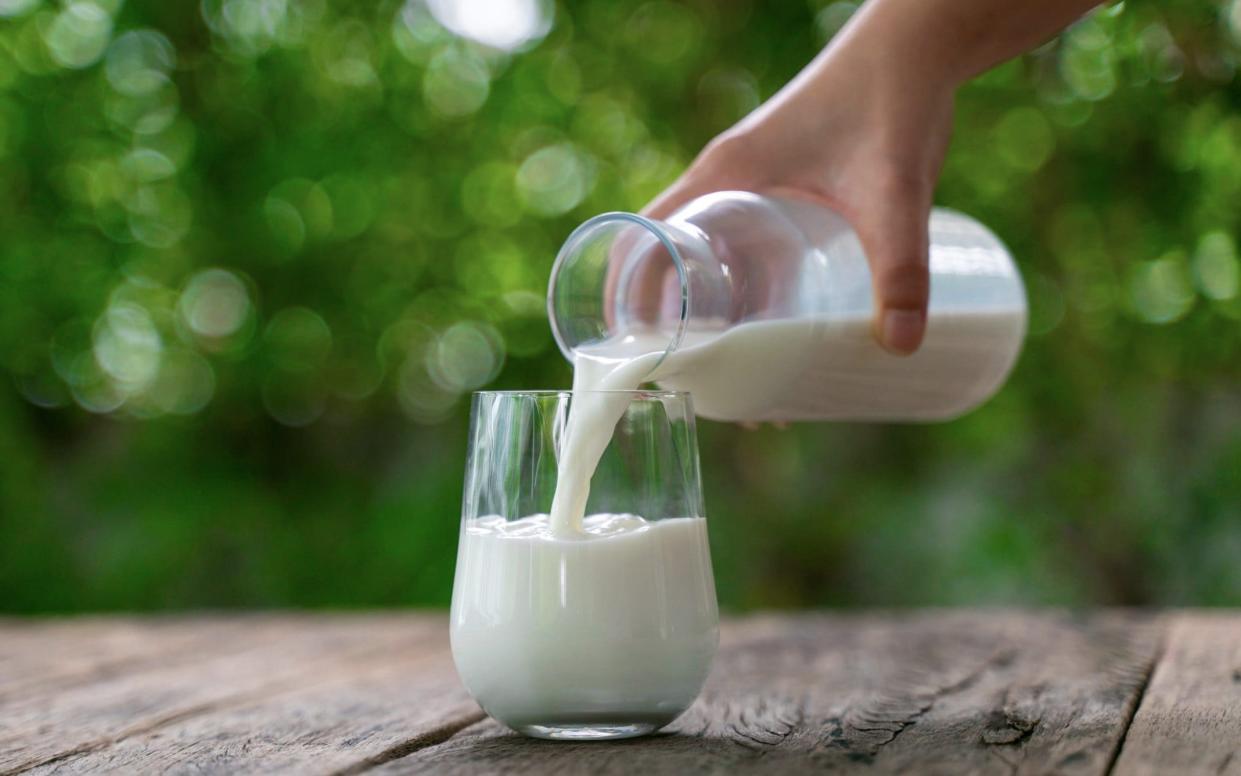Babies being over-diagnosed with milk allergies, researchers warn

Researchers have warned that babies are being over-diagnosed with milk allergies, after a study found three quarters of infants show symptoms, despite just one in 100 actually having the condition.
Excessive crying, regurgitation of milk and loose stools are among “mild to moderate” symptoms, with one in four parents reporting that their infant experienced at least two of these every month.
However, researchers say these are “extremely common” and unlikely to be due to an underlying cause.
Incorrectly attributing them to a cow’s milk allergy may cause “harm by discouraging breastfeeding” in favour of specialist formulas if women fear passing dairy they consume on to their child, researchers said.
The study of 1,300 children in England and Wales, led by the University of Bristol, found three in four children had “mild to moderate” symptoms at some point in their first year.
They were most common at three months of age, when children were fully breastfed and not directly consuming any cow’s milk.
At six months old, there was no difference in the number with two or more symptoms between those drinking the milk and those who were not.
Compared with the three-quarters of infants who had two or more of the “mild-moderate” symptoms, almost one in 10 had two or more “severe” signs of illness at some stage between three and 12 months.
Lead author Dr Rosie Vincent said that together these findings suggested the majority of symptoms listed in NHS allergy guidelines were common, normal and not caused by an allergy to cow’s milk.
‘The harm from over-diagnosis’
“Guidelines designed to help the non-specialist to diagnose cow’s milk allergy in infants may unintentionally medicalise normal infant symptoms and promote over-diagnosis of cow’s milk allergy,” said Dr Vincent, a research fellow at the University of Bristol.
The findings, published in the journal Clinical and Experimental Allergy, concluded that “the harm from over-diagnosis” may be greater than the damage of “delayed diagnosis”.
Senior researcher Dr Michael Perkin, from the Population Health Research Institute at St George’s, University of London, added: “Our findings come against a background of rising prescription rates for specialist formula for children with cow’s milk allergy, which is completely out of proportion to how common we know the condition is.
“Parents of young infants are often seen in clinics, worried about a medical cause for their infant’s symptoms such as colic, bringing up milk or loose stools. However, our research confirms that these symptoms are extremely common.
“In an otherwise healthy infant, an underlying cause is unlikely. Incorrectly attributing these symptoms to cow’s milk allergy is not only unhelpful, but it may also cause harm by discouraging breastfeeding.”
Only one in 100 infants actually affected by milk allergies
Breastfeeding can help to reduce a baby’s risk of infection, obesity, and cardiovascular disease in adulthood, according to NHS research.
The prescription of specialist formulas for babies with cow’s milk allergies has increased significantly since the guidelines were published.
In England, doctors prescribe about 10 times more of these specialist formulas than would be expected based on the proportion of families who use formula milk and the proportion of infants who have a milk allergy.
The findings follow a recent investigation of more than 12,000 children under two across Europe, conducted by Imperial College London and Sechenov University in Moscow. It showed that despite 14 per cent of families believing their child to have the condition, only one in 100 infants were actually affected by milk allergies.
Previous research also found that less than one-millionth of the protein from cow’s milk ends up travelling through to breast milk – too small to trigger any kind of reaction in most children with a milk allergy.
Types of allergies
There are two distinct types of cow’s milk allergies in children: IgE mediated and non-IgE mediated. They each display different symptoms after a child has been given food or drink containing the liquid.
The former is usually quite easy to spot and often occurs within an hour of an infant’s first exposure to milk.
The latter occurs more slowly. Symptoms include vomiting, diarrhoea or a flare of eczema.
Dr Vincent added: “The over-perception of food allergy in the general public is long standing and precedes the emergence of milk allergy guidelines for both adults and children.
“However, guidelines that potentially exacerbate the problem of overdiagnosis are not helpful.”
NHS guidelines state that any parents who are concerned that their child may be allergic to cow’s milk should go and see their GP.

